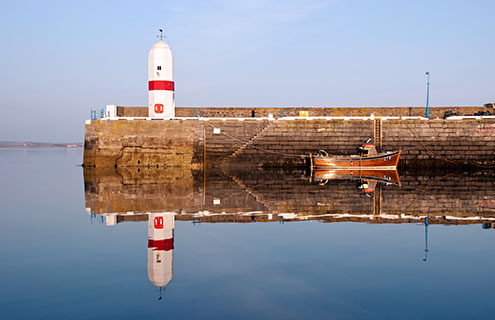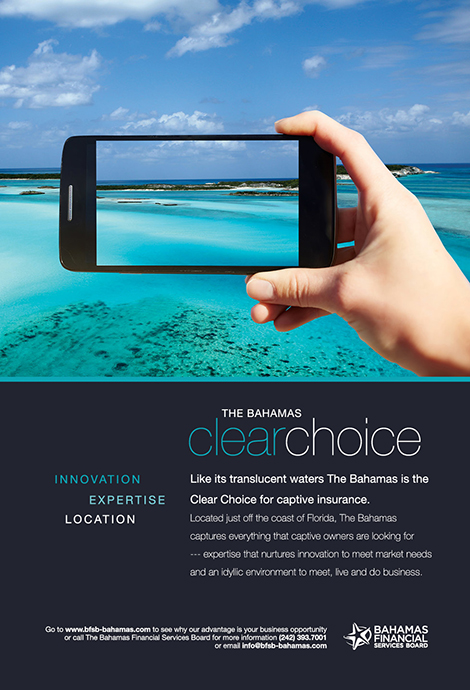The Isle of Man—situated in the Irish Sea between the islands of Great Britain and Ireland—launched itself as an international insurance centre in 1980, and as it currently stands there are 225 licensed entities located on the island.
The Isle of Man—situated in the Irish Sea between the islands of Great Britain and Ireland—launched itself as an international insurance centre in 1980, and as it currently stands there are 225 licensed entities located on the island.
Isle of Man Captive Association chair Gaynor Brough explains that captives domiciled on the island tend to be very international in flavour, with parent companies spanning 25 different countries including Australia, Japan and Singapore.
“Naturally, given our proximity to the UK, the Isle of Man has always been and will continue to be the offshore domicile of choice for UK parented captives,” adds Brough.
Interestingly, the Isle of Man is also the largest captive domicile for South African business outside of onshore South Africa, with historical ties that Brough claims date as far back as the 1880s.
She says: “The Isle of Man has for many years proved to be a good home for South African owned captives/insurers … Approximately 10 percent of the Isle of Man’s population is South African and the island is well known as an attractive location for South African companies to conduct business.”
“There is no particular industry dominance in terms of South African companies with captive insurance companies domiciled in the Isle of Man and any homogeneity is borne from the fact that they are large South African corporates with a global footprint.”
Claire McCormick, director at PricewaterhouseCoopers (PwC), explains that PwC sees a wide range of industries represented in the Isle of Man including manufacturing, engineering, construction, automotive, aviation, healthcare and retail.
“These captives themselves insure a diverse range of risks from property and business interruption, through professional indemnity and product recall to environmental risks … The majority, but by no means all, of the Isle of Man captives are a part of a group with a UK presence.”
Simon Phillips, head of captive insurance, wealth and investment management at Barclays, states that the firm has now been involved in the captive insurance market for more than 10 years.
According to Phillips, Barclays provide transactional banking, letters of credit, and investments and trusts to assist captive insurers with their fronting insurance arrangements and the day-to-day banking requirements of their captive.
Phillips says: “The Isle of Man is a key jurisdiction for Barclays Wealth and Investment Management. We’ve got a substantial business there that is home to a large proportion of our captive insurance team. We also service Bermuda and the Cayman Islands from the Isle of Man, so it is a very important hub for us.”
A (work) force to be reckoned with
While Brough feels that the insurance legislation in jurisdictions such as the Isle of Man and Guernsey is very similar, the Isle of Man differentiates itself from its competitors with its strong and stable workforce.
Brough says: “Unlike many of our competitors which suffer from a highly transient workforce, the Isle of Man operates a pragmatic work permit system and this supports the attraction and retention of insurance/finance professionals.”
“Our top quality and stable workforce translates into an uninterrupted and unrivalled client service model, which is highly valued by our clients and ensures that the island has a strong reputation and is preeminent in managing large and complex captives.”
McCormick highlights that the island has also established a regulatory code that is specific for insurers. She explains that the Isle of Man regulator, the Insurance and Pensions Authority (IPA), strives to be accessible to its customers by allowing groups to enter into bespoke discussions to ensure that individual circumstances can be reflected in the capital requirements.
“Regulatory development in the Isle of Man continues to be closely aligned with the insurance core principles as laid down by the International Association of Insurance Supervisors—widely seen as an international gold standard for insurance supervision.”
“The IPA has created a regulatory framework for captive insurance that is tailored to the nature, scale and complexity of insurance operations, while maintaining sufficient supervision to protect policyholder interests and the reputation of the island.”
McCormick also adds that as the Isle of Man is outside the European economic area (EEA), insurers based there would not be required to comply with the provisions of Solvency II when they come into force.
Phillips also supports the Isle of Man’s regulatory system, explaining that the island’s robust legislation is very attractive to clients.
“[The Isle of Man] has a well-established infrastructure in terms of captive managers, accountants, lawyers and banks that can help to provide support services for captives based there.”
“It is [also] a very stable jurisdiction, with a well-established legal framework, with a history of a stable political environment … the combination of all these factors produces a very high quality product, that is attractive to captive owners.”
Economically speaking
According to Brough, outside of the government the insurance industry is the largest employer on the island.
“Unlike other captive domiciles, the Isle of Man has dedicated insurance supervisor who has extensive industry and regulatory experience and this signifies the importance of the sector. The Isle of Man government is committed to support the insurance industry and invest in marketing and ensuring that the island remains a friendly but responsible place to do business.”
McCormick explains that the captive insurance industry in the Isle of Man is very well developed, with an annual growth rate in the last 10 years averaging 7.7 percent and 36 percent of its gross domestic product from the finance sector. Making the island a suitable destination for PwC clients.
She says: “A flexible but established and internationally regarded regulatory regime is often cited as the reason for domiciling in the Isle of Man. The low headline corporate tax rate is also attractive to [clients], as is the relative speed (usually less than three months) of setting up and licensing an insurance operation.”
“Practical aspects, such as ease of access from much of Western Europe and an established financial services industry with a strong talent base are also important.”
And while the Isle of Man’s economy certainly benefits from the insurance industry, Brough understands that no one captive domicile will fit all.
“If one has extensive operations in the EU, then the Isle of Man may not be attractive as it is unable to issue policies directly into most EU countries. However, saying that there is increasingly different considerations as the uncertainty surrounding Solvency II and increased costs associated with this are proving to be stimulating more enquiries in captive domiciles such as the Isle of Man.”
Phillips adds that there is “increasing competition out there form a jurisdictional perspective but there are still things that the Isle of Man can, and is, doing to promote itself”.
According to McCormick, one of the island’s biggest drawbacks is that it is not in the EEA, therefore a UK company with an Isle of Man captive cannot benefit from the new UK controlled foreign company rules in quite the same way as a group with a captive in a EEA could.
“Some expect that when Solvency II is implemented, EEA-based entities seeking business with other insurers or reinsurers not within the zone may face additional restrictions or risk higher capital requirements; this could make it more costly to reinsure onwards from the Isle of Man.”
“Whilst not unique to Isle of Man, organisations operating in low-tax environments may face additional scrutiny from stakeholders including regulators, fiscal authorities, employees and customers.”





